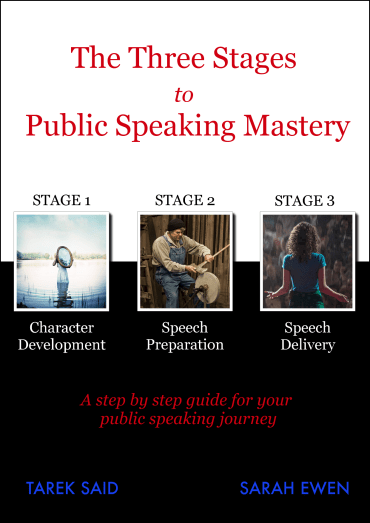HOW TO BE YOURSELF
“Just be yourself” is perhaps the most common piece of advice given before interviews, dates and work presentations. But more often than not, we don’t even know what it means let alone be able to do it at times when we need it the most!
In this article I share a framework to better understand what it means to “be yourself” and how to be able to do it in every situation.
When working with clients I often get asked questions about how to ‘just be yourself’. For example: If I am extremely nervous during a presentation, is it still ok just to be me or is there a persona I should adopt? If I am someone who doesn’t usually take things seriously, is it ok to just be myself and not take the questions in an interview too seriously?
Below is a framework to better understand what it means to “be yourself” and how to be able to do it in every situation.
What does it mean to be yourself?
Being yourself is being the person you are around your closest friends. The person you are when you are with those that make you feel the most comfortable, relaxed and at ease.
When you are around your closest friends you hopefully feel comfortable without fear of judgement or criticism. Being yourself is about feeling relaxed and comfortable in any situation the same way you are relaxed and comfortable around your closest friends.
When I am around my closest friends I may act in a way that is inappropriate in other situations!
Indeed. That’s why being yourself is about how you “feel” around your closest friends and not how you “act” around them. In fact when you are with your closest friends you may not always act the same way, sometimes you may be more formal, sometimes you may be more casual. Sometimes you may talk about serious topics, sometimes you may crack jokes. What is constant is the feeling of being comfortable around them. That’s what is meant by “just be yourself”
Being comfortable around strangers is very difficult, how do I do that?
The main reason we are often uncomfortable around strangers is because we are often consumed by our own insecurities so we can’t just be ourselves around them.
There are two ways to deal with this:
- Simple method – Project niceness on others
- Complex method – Get to the root cause
Projecting niceness on others is having the mindset that people, including strangers, usually do not judge our insecurities. Strangers after all are people with insecurities of their own. They won’t be harsh with our insecurities just like we won’t be harsh with theirs. While this method may work for you, it may not always make you feel completely comfortable; you may doubt that someone, whether intentionally or unintentionally, would still play on your insecurities.
Getting to the root cause of why you feel uncomfortable around strangers is profound although it can be very confronting.
It is a complex method because it takes time, it is not easy and it involves doing something we usually try to avoid. It involves coming face-to-face with our insecurities, accepting them, getting comfortable with them and moving forward. Whilst this is method is very confronting, it is also the most liberating thing any of us can do. Once you are comfortable with your own insecurities, you will be free to ‘just be yourself’ in any situation.
To be comfortable with your insecurities it is best to face them and ‘listen’ to what they have to tell you. Gradually expose yourself to the things that make you feel insecure, acknowledge the feelings and let them come to the surface instead of suppressing them or trying to ignore them.
It can be a long and a tough journey but the outcome is truly profound and well worth the work involved. You will be free to just to be yourself in any situation no matter what the stakes are.
You have talked about how to be yourself on an internal level, how does that translate into actions?
The main sign that you are being yourself is that you do not overcompensate.
There are three main scenarios that may make people overcompensate: when they are nervous, when they are in a formal situation and when they want to impress others. Here is how overcompensation and being yourself plays out in these scenarios:
When you are nervous:
- Overcompensation: A tendency to become either over-confident or overly shy.
- Being yourself: Able to accept nerves and embrace them instead of rejecting and suppressing them.
When you are in a formal situation:
- Overcompensation: A tendency to become too formal. For example, start using phrases you don’t usually use like: “without further ado” Or, become too casual. For example, start cracking inappropriate jokes.
- Being yourself: Using words and phrases that you use in everyday conversations and being comfortable to crack jokes when it’s appropriate, and, be serious when it is required.
When you want to impress:
- Overcompensation: A tendency to become overly nice or too distant. Either becoming too nice by for example, agreeing with everything the person you are trying to impress says or, becoming too distant out of fear of coming across as too familiar.
- Being yourself: Believing your are enough and not getting caught up in comparing yourself. Not fearing being too nice and willing to share your opinion with those you want to impress.
Conclusion
Being yourself is about being comfortable in any situation in the same way you feel comfortable when you are with your closest friends.
‘Just being yourself’ involves a shift in mindset about your insecurities and if you want to take it a step further, dealing with the root cause of insecurities. Doing this is extremely liberating. The main sign that you are being yourself is not feeling any need to overcompensate to mask any insecurity.
As a public speaking trainer and coach and active observer of speakers I see this being played out on stage. You can spot speakers who are very comfortable with being themselves and speakers who feel too uncomfortable to let go and do that.
The reality is ‘just being yourself’ is a journey of discovery well worth taking. It can be hard work but the reward of feeling completely liberated in just being yourself is immeasurable!

